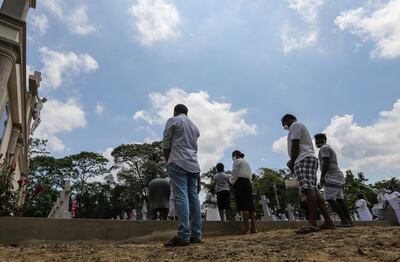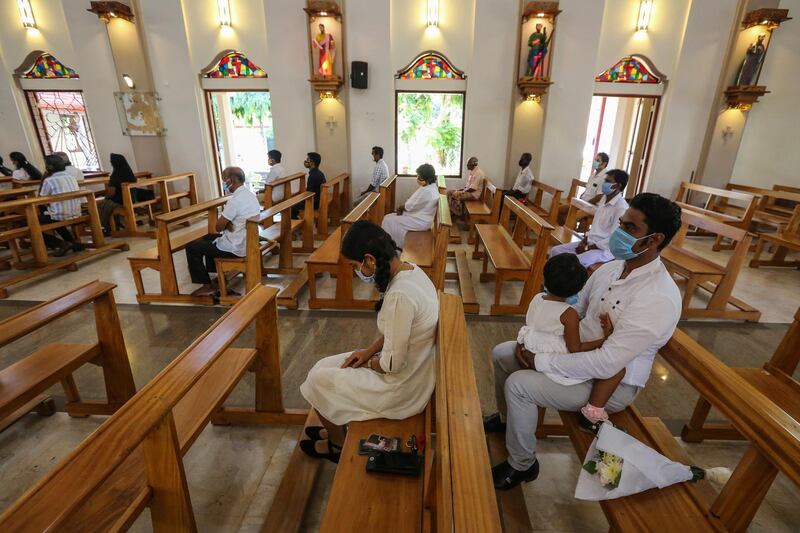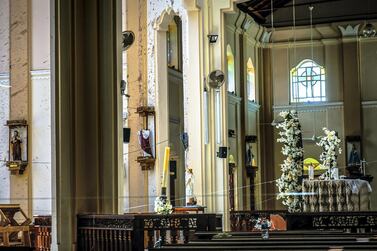Sri Lankans remembered the victims of the deadly ISIS-claimed Easter attacks on churches and hotels around the country last year with private memorials a year on from the tragedy on Tuesday.
A cell of attackers launched a coordinated assault on hotels frequented by foreigners and churches hosting Easter Sunday services in Colombo and Negombo, leaving 279 people dead.
The attack was the first of its kind in the south Asian country and the government was heavily criticised for failing to act on intelligence it had received from Indian security services that such an attack was being prepared.
The attack killed 45 foreigners and wounded up to 600 people. The attacks were committed by nine well-educated extremists, including one woman, according to the Sri Lankan government.
But the memorials for the dead were not held in public due to the coronavirus pandemic that has swept the world and left the island nation on lockdown.
The unveiling of special monuments for attack victims at two cemeteries was put off because of social distancing rules to prevent the spread of the virus.
Plans to open a soup kitchen at the St Anthony's were also scrapped.
Instead, churches across the country rang their bells for five minutes.
This was followed by two minutes of silence from 8.45am - the moment the bombers struck. Even television channels went silent during the tribute.
Some survivors attended a closed service at St Sebastian's church just outside Colombo, which was hit by a bomb.
At St Anthony's church in the capital, residents prayed outside and lit candles near a memorial for the 56 people who perished inside.

"We honour especially all those, who lost their loved ones and those who were injured, for their spirit of magnanimity in not reacting in anger and hatred," said Cardinal Malcolm Ranjith, Sri Lanka's Catholic leader in an anniversary message.
Ranjith thanked minority Catholics for not retaliating against Muslims.
However, inter-communal riots did erupt three weeks after the attacks. One man was killed and hundreds of homes and vehicles were damaged.
Due to the scale and sophistication of the attacks, diplomats and top terrorism experts said what was initially attributed to a minor local group known as National Tawheed Jamaat (NTJ) had wider, international connections.
Sri Lankan officials said local extremists could not have acted alone in committing one of the worst atrocities in modern history.
The UN office in Sri Lanka stressed the need to relentlessly fight terrorism.
"Terrorism should not be associated with any religion, ethnicity or race," it said in a statement.
"The purpose of terrorism is to inoculate societies with the virus of fear. Fear of the other, fear of differences, fear of dissenting opinions or different accents or clothing."
The police chief and the secretary to the defense ministry at the time of the attacks are facing legal action over alleged negligence.
More than 100 suspects with alleged links to the masterminds of the attacks have been detained by police.
The Indian Ocean island nation had been under a 24-hour curfew since March 20. The curfew will remain in effect from 8pm until 5am until further notice. Sri Lanka has 304 confirmed cases of the virus, including seven deaths.







